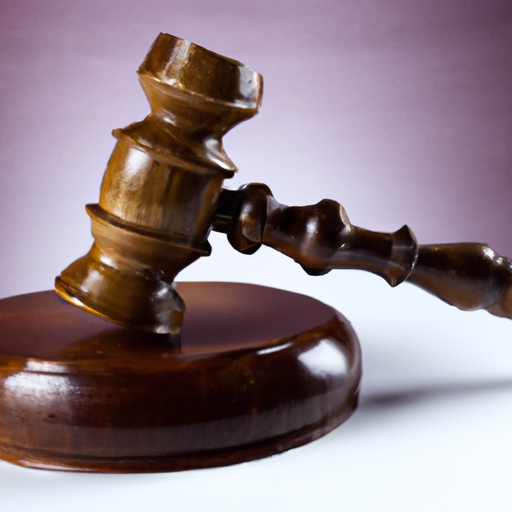In today’s digital age, social media has become an integral part of our lives, affecting both individuals and businesses alike. However, with the rise of this powerful communication platform comes a myriad of legal challenges. Social media claims litigation has emerged as a crucial area of law that seeks to address the legal disputes arising from social media interactions. Whether it involves defamation, intellectual property infringement, or privacy breaches, businesses need to be aware of the legal implications of their online presence. This article will explore the intricacies of social media claims litigation, providing businesses with essential insights to protect their interests and navigate this complex legal landscape effectively. Read on to discover the key FAQs surrounding this area of law and find concise answers to your most pressing legal concerns.
Understanding Social Media Claims Litigation
Social media claims litigation refers to legal disputes arising from issues related to social media platforms. As the influence of social media continues to grow, so do the potential legal challenges that businesses and individuals may face. This article will delve into the key elements of social media claims litigation, the different types of claims that can arise, the legal challenges involved, and how to protect your business from such claims.
What is Social Media Claims Litigation?
Social media claims litigation encompasses a range of legal disputes involving actions taken on social media platforms. These disputes can arise from various issues such as defamation, intellectual property infringement, privacy violations, employment law violations, and cyberbullying. The rise of social media platforms has provided individuals and businesses with a powerful means of communication, but it has also opened the door for potential legal complications.
Key Elements of Social Media Claims Litigation
Social media claims litigation involves several key elements that need to be considered. First, it is essential to understand the specific legal challenges that can arise from actions taken on social media platforms. This includes understanding the laws and regulations governing online defamation, intellectual property rights, privacy, employment practices, and cyberbullying.
Another crucial element is gathering evidence to support your claim or defend against one. This may include collecting screenshots of social media posts, preserving metadata, and identifying witnesses who can provide relevant information. Additionally, understanding the potential damages and legal costs involved is vital when considering pursuing or defending against a social media claim.
Types of Social Media Claims
Social media claims can take various forms, each requiring a unique legal approach. Some common types of social media claims include defamation and libel claims, intellectual property infringement claims, privacy and data protection claims, employment law violations, and cyberbullying and harassment claims. Understanding these different types of claims is crucial in developing a strong legal strategy.
Legal Challenges in Social Media Claims Litigation
Social media claims litigation presents several legal challenges that require careful navigation. The evolving nature of social media platforms and the constantly changing legal landscape make it essential to have a lawyer well-versed in social media claims litigation. Some of the challenges that may arise include determining the jurisdiction and applicable laws for a claim, preserving electronic evidence, addressing issues of anonymity, and proving the causation and damages in certain claims.

Hiring a Lawyer for Social Media Claims Litigation
When faced with a social media claim, it is crucial to hire an experienced lawyer specializing in social media claims litigation. The complexity of these cases requires legal expertise and a deep understanding of the unique challenges posed by social media platforms.
The Importance of Hiring an Experienced Lawyer
Hiring an experienced lawyer is essential to navigate the complexities of social media claims litigation successfully. These lawyers have the knowledge and expertise to analyze the unique legal challenges that arise in social media disputes. They are familiar with the laws and regulations governing social media platforms and can develop effective strategies to protect your interests.
Factors to Consider When Choosing a Lawyer
When choosing a lawyer for social media claims litigation, there are several factors to consider. First and foremost is the lawyer’s experience in handling similar cases. Look for a lawyer who has a proven track record in successfully resolving social media claims. Additionally, consider their knowledge of the relevant laws and regulations and their ability to develop a tailored legal strategy for your specific circumstances. Communication skills and a commitment to client advocacy are also crucial factors to consider.
Case Studies and Success Stories
A lawyer with experience in social media claims litigation should be able to provide case studies and success stories illustrating their previous work. These examples demonstrate their ability to navigate complex legal challenges and achieve favorable outcomes for their clients. Reviewing these case studies can provide you with confidence in your decision to hire a particular lawyer.

Steps to Take in Social Media Claims Litigation
Navigating social media claims litigation requires a systematic approach that involves several key steps. By following these steps, you can effectively manage your case and protect your interests.
Assessing the Claim and Gathering Evidence
The first step in social media claims litigation is assessing the claim. This involves thoroughly reviewing the allegations and determining the strengths and weaknesses of your case. Gathering evidence is also critical during this stage. This can include collecting screenshots of social media posts, preserving metadata, identifying witnesses, and seeking expert opinions when required.
Sending a Cease and Desist Letter
Sometimes, a well-drafted cease and desist letter can resolve a social media claim without further litigation. A cease and desist letter outlines the alleged wrongdoing, demands a cessation of the harmful activity, and may include a request for compensation. This letter serves as a formal notice to the opposing party and provides an opportunity for resolution before resorting to legal action.
Filing a Lawsuit
If the dispute cannot be resolved through negotiation or other means, the next step is to file a lawsuit. This involves preparing legal documents outlining the claims and supporting evidence. It is important to adhere to the relevant court rules and procedures to ensure the lawsuit progresses smoothly.
Negotiating Settlements
During the course of social media claims litigation, there may be opportunities for negotiation and settlement discussions. These negotiations aim to resolve the dispute without going to trial, saving time and resources for all parties involved. Skilled negotiation tactics, backed by a strong legal strategy, can lead to favorable resolutions.
Going to Trial
If a settlement cannot be reached, the case may proceed to trial. Going to trial involves presenting evidence, examining witnesses, and making legal arguments before a judge or jury. It is essential to have a lawyer experienced in trial advocacy to effectively present your case and advocate for your desired outcome.
Protecting Your Business from Social Media Claims
To minimize the risk of social media claims, businesses should implement policies and practices that address the unique challenges posed by social media platforms.
